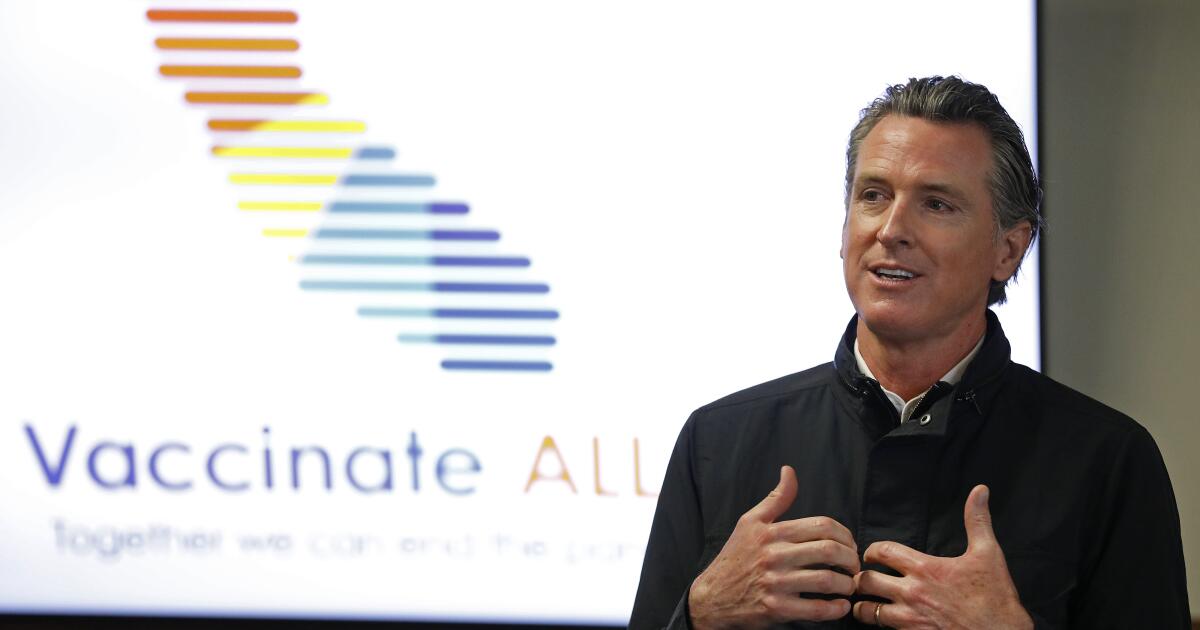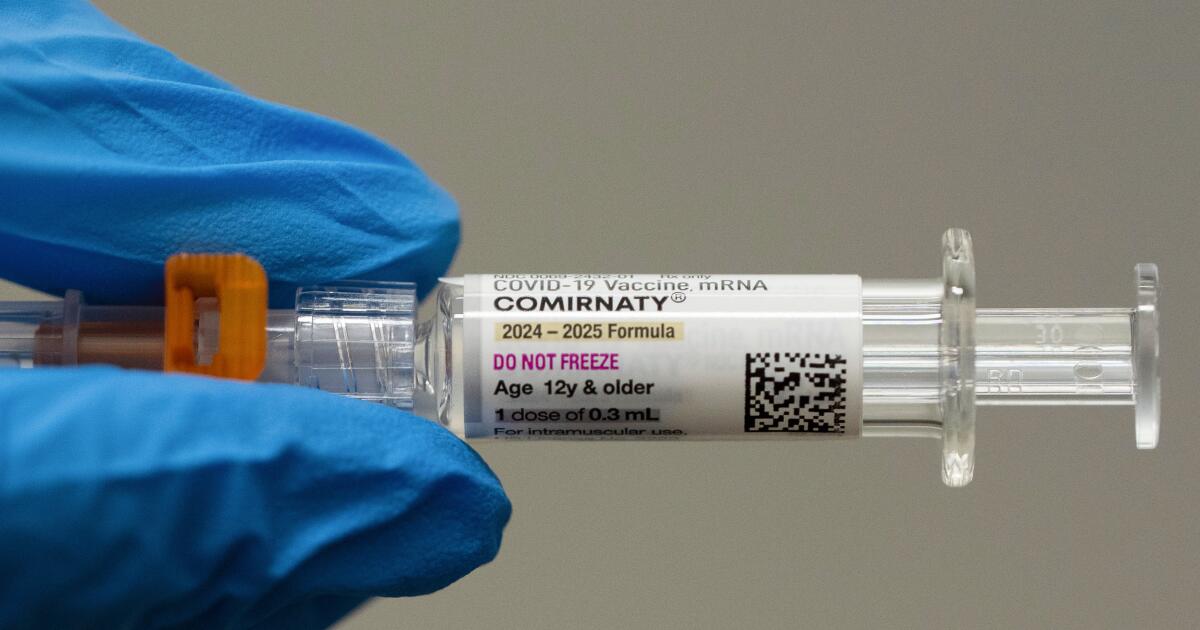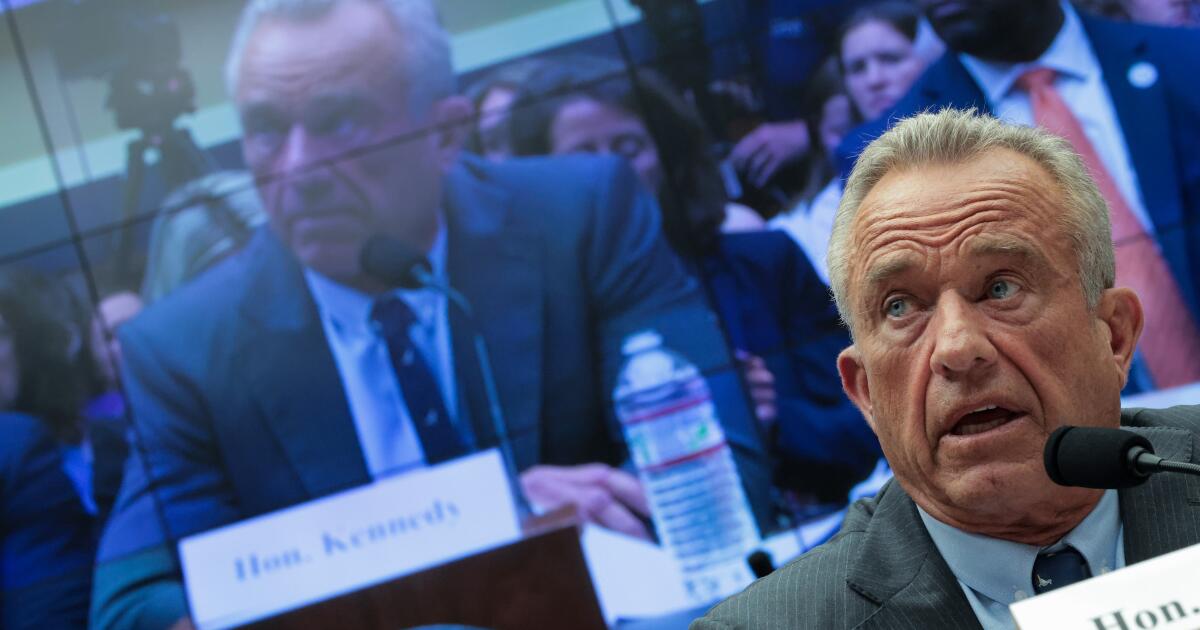California, West Coast states roll out their vaccine recommendations
SACRAMENTO — Gov. Gavin Newsom signed a law giving California the power to set its own immunization schedules based on state health experts and independent medical groups — a sharp break from decades of reliance on guidance from the federal government.
The move came the same day that California and its West Coast allies issued joint recommendations for COVID-19, flu and RSV vaccines, part of a regional alliance formed to counter what they say is a politicized U.S. Centers for Disease Control.
“Our states are united in putting science, safety, and transparency first — and in protecting families with clear, credible vaccine guidance,” said the governors of California, Oregon, Washington and Hawaii, which make up the West Coast Health Alliance.
The flurry of vaccine actions came as lawmakers and the University of California proposed a $23-billion ballot measure to replace federal research dollars lost to Trump-era cuts, underscoring efforts by Democrats in the state to shield science and public health from shifting federal policies. The measure, if passed by the California Legislature when lawmakers return in January, would go before voters in November 2026.
“The loss of critical federal funding awarded to the University of California presents an unprecedented and perilous moment for the state and its communities,” Theresa Maldonado, UC vice president for research and innovation, said in a statement.
The healthcare clash comes following a wave of COVID cases and as the annual flu season nears. For decades, the CDC has been the nation’s trusted authority on vaccines — setting childhood immunization schedules, guiding which shots adults should receive and shaping state health policies across the country.
Now, at the direction of Health and Human Services Secretary Robert F. Kennedy Jr., a Trump ally, the CDC fired top leadership, lost senior scientific advisors and remade its vaccine advisory committee with members who the Associated Press found spread misinformation and conspiracy theories about immunizations.
Kennedy, a longtime vaccine skeptic, has defended the shakeup as necessary to create trust and “eliminate politics from science.”
“They deserve the truth and that’s what we’re going to give them for the first time in the history of the agency,” Kennedy told the Senate Finance Committee earlier this month during a contentious hearing.
The overhaul triggered a fierce backlash as more than 1,000 employees at the health agency and national health organizations have called on Kennedy to resign. Some states, however, have embraced the approach — Florida announced plans to become the first state to end all vaccines mandated, including for schoolchildren.
The polarization is taking a toll. A recent KFF poll found Americans are increasingly uncertain about public health guidance and whether new recommendations from the administration will make them more or less safe.
Public health experts say that not only are vaccines crucial for the health of individuals and the community but they also ultimately save money — preventing sickness and the rise in healthcare costs that would accompany widespread disease outbreaks.
The changes in federal vaccine recommendations have been sweeping. The Food and Drug Administration, which falls under Kennedy’s purview, now requires adults 65 and younger and otherwise healthy — who report no underlying health issues — to consult with a healthcare provider before getting the COVID vaccine. Similarly, the CDC requires parents of healthy children to talk to a healthcare provider before their child can receive the COVID vaccine, a barrier the American Academy of Pediatrics called “deeply troubling.”
The American Academy of Pediatrics issued its own COVID vaccine guidance, countering what the CDC recommended, that says all young children 6 months to 23 months should be vaccinated, as well as certain high-risk older children. The group has also said that older children should be offered the vaccine if their parents request it.
The CDC also changed its vaccine schedule from recommending the COVID vaccine to all pregnant women to offering “no guidance” as to whether healthy pregnant women should get the vaccine. In response, the American College of Obstetricians and Gynecologists recommended that people receive the updated COVID-19 vaccine at any point during their pregnancy.
California said it too will reject CDC guidance, starting with the recommendations released Wednesday from the West Coast Health Alliance. Those recommendations were developed by health officers and subject matter experts from each state, who considered guidelines from medical organizations such as the American Academy of Pediatrics, the American College of Obstetricians and Gynecologists and the American Academy of Family Physicians.
The COVID-19 vaccine recommendations from the West Coast Health Alliance include vaccinating all children 6 months to 23 months and those 2 years old to 64 years old with risk factors. The alliance also recommended all pregnant and postpartum women or those planning to become pregnant to be vaccinated.
The alliance recommended children 6 months and older and all adults and pregnant women to receive the flu shot. For the RSV vaccine, the alliance recommends it for children younger than 8 months, as well as anyone 75 years or older. The alliance recommends the RSV vaccine for all other ages if a person has risk factors.
“We want the people who live and work in our states to know that there is a strong public health, healthcare and scientific community that will continue to stand together to provide and use the data and evidence needed for you to make healthy choices, and we are here to protect our communities,” said Dr. Erica Pan, director of the California Department of Public Health, in a statement.


